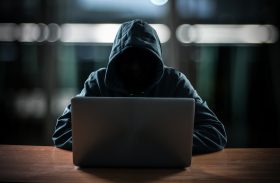The FCC's Net Neutrality Hacking Problem

Has everything become fake? First we had fake news. Now we have fake FCC comments. It may all lead to fake democracy.
As the Federal Communications Commission (FCC) moves forward on its self-important drive to dismember the politically volatile Internet policy of Net Neutrality, the New York Attorney General (AG) Eric Schneiderman has released powerful evidence that the FCC ignored a massive manipulation of the public comment period on Net Neutrality, including withholding information and refusing to investigate fraudulent posting of tens of thousands comments attached to fake identities.
In a post on Medium titled "An Open Letter to the FCC," AG Schneiderman says the entire FCC rule-making process was "corrupted by the fraudulent use of Americans' identities." The gist of Schneiderman's charges are such:
"My office analyzed the fake comments and found that tens of thousands of New Yorkers may have had their identities misused in this way. (Indeed, analysis showed that, in all, hundreds of thousands of Americans likely were victimized in the same way, including tens of thousands per state in California, Georgia, Missouri, Ohio, Pennsylvania, Texas, and possibly others.) Impersonation and other misuse of a person’s identity violates New York law, so my office launched an investigation."
Is this enough to derail FCC Chairman's Ajit V. Pai's agenda? Or will the bureaucrats in Washington team with oily lobbyists and lawyers to dodge the entire bomb. This particular case may be emblematic of just about everything in Washington D.C. -- proving that democracy is now some kind of digital illusion, masked by the nefarious activities of behind-the-scenes hackers.
Whether or not you are for Net Neutrality (in the past I was actually still on the fence -- but this may have changed my mind), the charges raise serious questions about the politicization of the FCC, the power of lobbyists and/or political operatives and criminals to manipulate the system, and even the security of the FCC's technology systems. It will be interesting to see how far this story escalates and whether it becomes a problem for Pai, his agenda, and his career.
Schneiderman's office points out that his office's investigation of the FCC comments in New York reveals that in many cases, real identities were used to post comments not associated with the real person, constituting identity theft. He believes this also happened in many other states.
But as they say in government, it's not necessarily about the crime... it's about the coverup. The key element of the bombshell that Schneiderman has dropped is that his office detailed these findings to the FCC and the FCC has done... absolutely nothing:
"We reached out for assistance to multiple top FCC officials, including you [Chairman Pai], three successive acting FCC General Counsels, and the FCC’s Inspector General. We offered to keep the requested records confidential, as we had done when my office and the FCC shared information and documents as part of past investigative work.
Yet we have received no substantive response to our investigative requests. None."
This story first surfaced in the spring, as reported by outlets such as Ars Technica, but it has remained surprisingly quiet (until now). Maybe Schneiderman's efforts will serve to illuminate the public about what actually happened -- and whether the rule-making process was corrupted sufficiently to bring the whole agenda under question. Or maybe the FCC will continue to ignore it.
What happens next? The right thing for the FCC to do would be to acknowledge this problem and present their facts on the charges. And U.S. Congress should definitely get involved. There should be a Congressional investigation. Yes, we are keeping the lawyers in D.C. very busy these days.
As I've posted on this site before, I'm not sure about the efficacy of Net Neutrality at the FCC, mostly because I don't think it should be under the jurisdiction of the FCC. These new charges may actually serve to back up my point. It's a complicated issue that attempts to engineer the commercial delivery of the Internet, which is far more complicated than the mainstream media makes it out to be. I do believe that commercial enterprises that spend millions of dollars to upgrade their infrastructure should be compensated for its use.
But this? This paints a grim and disappointing picture of the FCC as a steward of communications policy. It's now made the debate about the process to make the policy, not the policy itself. It paints the FCC as poor stewards of the public's view. I've always believed the FCC was arrogant and misguided -- which is why I argued that Net Neutrality should not be a policy debated or set in the FCC -- but this is enough to convince me that we need to keep Net Neutrality until there is a more transparent, democratic process to prove that it's wrong.
Sadly, this makes it looks like Pai and his Net Neutrality Dismemberment Committee might just be part of the overall trend of partisan politics at any cost -- and we need to find out the truth. Kudos to Schneiderman for defending the public's right to a fair and authentic exchange of information.


